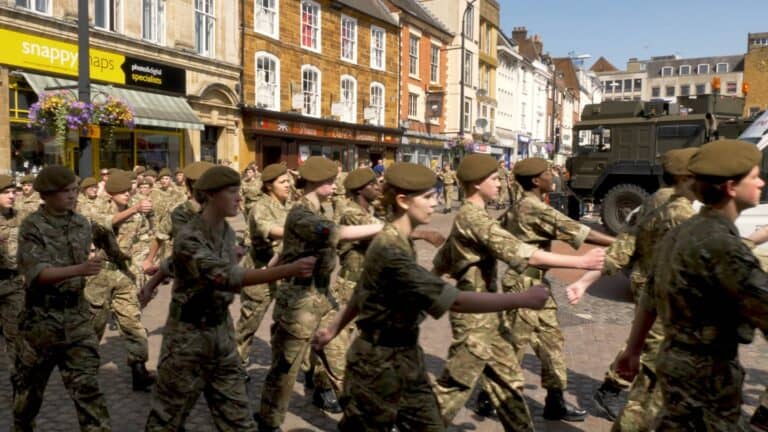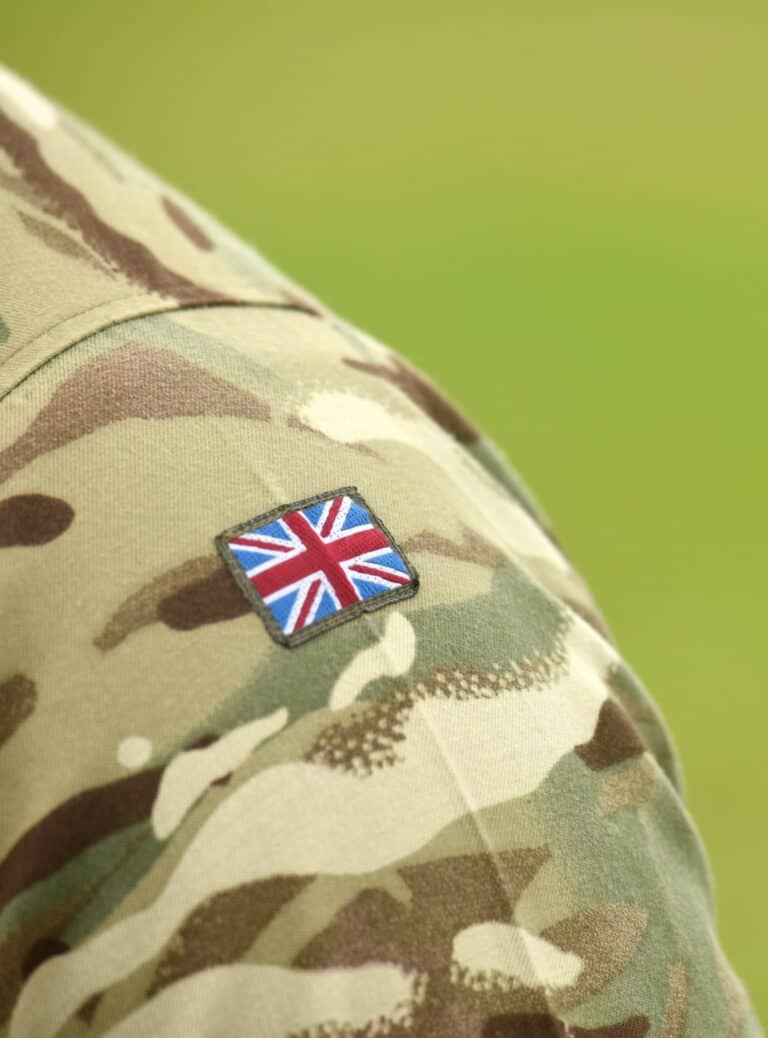Women at War – The Stereotypical Female
Since working in my firm’s military team I have been continually fascinated by our client’s tales of military life, both on and off duty. I have found myself gravitating towards anything that can help me gain further insight into the military culture.
In this vein, I booked tickets to see ‘Women at War’ – a play that combines the true stories of four women who formed part of the US Army’s Female Engagement Team (FET) deployed to Afghanistan in 2012-2013. I was captivated by the questions raised in its synopsis: what happens when women engage in combat? Does it change the way we engage in conflict? What does it uncover about expected gender roles?
Women at War – a brief synopsis
The play is a one woman performance that uses verbatim interviews along with poetry, movement, visual art, and music. It tells true stories about how the women struggled to combat sexism in the Army; the physical toll of preparing for combat; how they adjusted to Afghan culture; and their bond with the women of Afghanistan.
The deployment of FET at this time was controversial, as the ban on females working in close combat roles in the US Army had not yet been lifted. FET was set up to overcome the cultural issue of male soldiers being prohibited from interacting with Afghan females. The unit’s mission was to gather intelligence and build relationships with local women and children.
The production flits between the character’s tough exterior which tells stories of life in the FET and the character’s subconscious that discusses the frustration, fear and pressure of being a woman. It sends a powerful message about female stereotypes in the military. The characters subconscious constantly worries about being ‘that girl – The Stereotypical Female’. The attributes associated with such a girl was someone who was weak and a cry-baby; who can’t carry their own weight and who was promiscuous or a troublemaker.
The play also described the prevalence of sexual harassment as part of military culture; how the females had to earn respect and prove they could do the same job as the men; and the additional pressure they felt to overcome the female stereotype. The play also touched on the stigma attached to PTSD in the military with one of the characters saying ‘I can’t even tell you how to deal with that’.
Gender in the British Armed Forces
For me, the most powerful thing about the performance was that the stories being told, and the emotions of the characters, stemmed from real life experiences. I left wondering whether ‘The Stereotypical Female’ also existed in the British Armed Forces.
The British military have come a long way towards reaching gender equality. 2017 marks the 100th anniversary of women being able to enlist into non-nursing branches of the British Armed Forces. It’s also the 25th anniversary of the disbandment of the separate Women’s Royal Army Corps and the joining together of male and female soldiers into one army. Finally, just last year, Britain lifted the last restrictions, making women eligible to serve in all combat roles for the first time, with the RAF leading the way in equal recruitment from this September.
Of course, there are still issues that need to be addressed. The British Armed Forces is made up of mostly men, with women only accounting for only 10.2% of the Regular Forces in April 2017[1]. A quick Google search sheds light into why women may be discouraged from joining. There are pages of articles citing the reasons why women are not suitable for military life: they are not physically fit enough, their physiology is different; they might get pregnant; and their presence increases the amount of sex and sexual harassment – or otherwise summarised above as ‘the Stereotypical Female’.
Gender differences – where to draw the line
A male dominated environment brings with it inherent problems. A 2015 report into sexual harassment in the British Army revealed that nearly four out of ten servicewomen have received unwanted comments or been exposed to material of a sexual nature. 13% of females interviewed described the experience as ‘particularly upsetting’. Nearly half did not make a formal complaint because they were concerned about the consequences, such as being labelled a troublemaker and the effect it might have on their career.
If you feel that you are being treated differently or harassed because of your gender, it is important that you formally raise these issues with your line manager and/or make a service complaint. The only way to overcome the associations of The Stereotypical Female is make people accountable for their unequal treatment.
It is not controversial to acknowledge that there are differences between men and women, but these differences should not prevent treatment or opportunities from being equal. The Women at War play cleverly sheds insight into the difficulties women face in the military. I would thoroughly recommend seeing the show at the Edinburgh Fringe Festival throughout August.
I am a Trainee Solicitor in the Military team at Bolt Burdon Kemp. If you or a loved one have suffered an injury or you are concerned about the treatment you have received, contact me free of charge and in confidence on 020 7288 4860 or at victoriasedgwick@boltburdonkemp.co.uk for specialist legal advice. Alternatively, you can complete this form and one of the solicitors in the Military team will contact you. You can find out more about the team here.
[1] ‘UK Defence Personnel Statistics’, House of Commons Briefing Paper, Number CBP7930, by Noel Dempsey, dated 29 June 2017.










